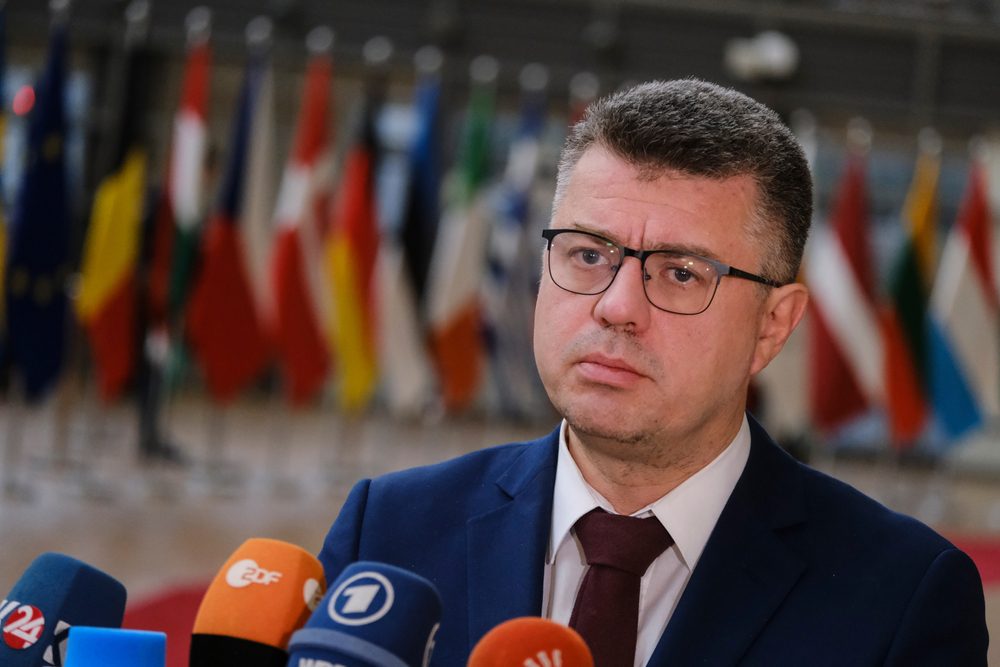
Estonian FM Urmas Reinsalu, February 20th, Brussels
Weapons, sanctions, and the Chinese question are to be discussed, as EU foreign ministers arrive at the Foreign Affairs Council meeting in Brussels on Monday, February 20th.
As the one-year anniversary of the beginning of the Russian invasion draws close, the foreign ministers of the European Union reaffirmed their commitment to Kyiv ahead of Monday’s Council meeting, one day after the Munich Security Conference.
One of the most important issues on the Council’s agenda is set to be the devising of a “pan-European ammunition procurement scheme,” said Estonian Foreign Minister Urmas Reinsalu, underlying that without the EU’s help, Ukraine has no means of matching the high amount of artillery shells fired by Russia every day. According to Reinsalu, the proposed procurement scheme, if approved by the Council, is set to deliver over one million 155 mm artillery rounds over the course of this year, for the cost of about €4 billion.
Finnish Foreign Minister Pekka Haavisto also reaffirmed his country’s commitment to ramping up military assistance to Ukraine, adding that his country “has been delivering twelve military packages worth almost €600 million” so far.
Tobias Billström, the foreign minister of Sweden (which also holds the Council’s current presidency), told reporters that the war in Ukraine can only end with Russia’s decisive military defeat on the battlefield and that EU members are committed to seeing to that end. When asked about his opinion on the recent news, that Beijing might consider supporting Moscow with weapons, he answered by saying that such a move will not be tolerated by the West.
News of possible Chinese involvement in the war in Ukraine came from U.S. Secretary of State Antony Blinken, who recently said that new intelligence suggests that Beijing is preparing to send “lethal support” to Moscow, which would constitute a serious escalation in the eyes of Washington.
“We are fully on the side of Ukraine and that means that we want to see no support, whatsoever, to Russia at this moment in time, because Russia has created a war of illegal aggression against Ukraine,” Billström told reporters regarding the Chinese question: “That is the message: no weapons, under any circumstances, from any country, to Russia.”
With reference to possible Western repercussions, if China were indeed to deliver arms to Russia, Billström said that while the question should be primarily answered by the United States, “there will be consequences.”
Regardless, the main objective remains to help Ukraine defeat Russia on the battlefield. “This is the policy of the Swedish presidency and this is the policy of Sweden as a state,” the foreign minister said, stressing that it won’t happen without more military, political, humanitarian, and financial support from the EU and the West.
The EU’s upcoming tenth sanction package against Russia will also be a hot topic of the Foreign Affairs meeting, along with discussing ways to close the loopholes in previous packages, as Russia is constantly trying to circumvent them, said Billström. “That needs to be stopped,” he added. Moreover, a fifth sanction package aimed at Iran is also on the table, as the Council is set to discuss Tehran’s human rights violations and its military assistance to Russia.
The Swedish diplomat also added that the current presidency of the Council is working closely with the European Commission in efforts to raise more humanitarian and financial support for the victims of the earthquake in Turkey and Syria.
The European Conservative will continue to monitor the developments of the meeting and report them as they come in.
